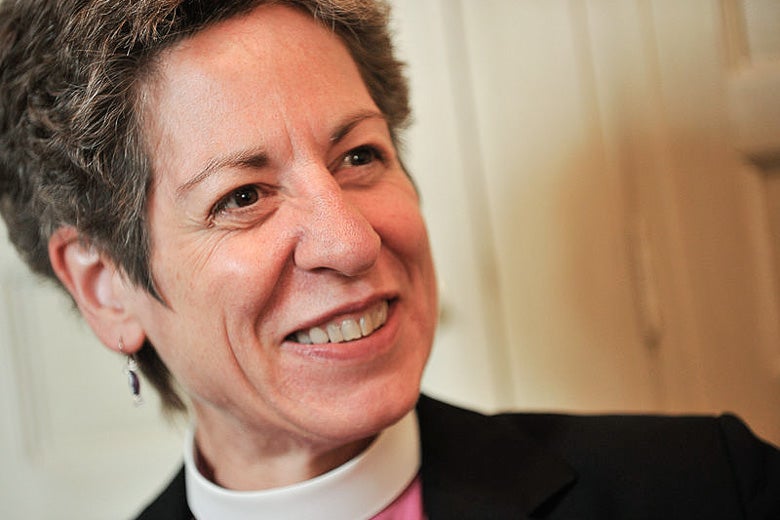Katharine Jefferts Schori named Baccalaureate speaker
The Most Rev. Dr. Katharine Jefferts Schori, the first woman to serve as presiding bishop of the Episcopal Church, has been named Stanford’s 2016 Baccalaureate speaker.
Baccalaureate is a multifaith, end-of-the-year celebration for graduating students, their families and the university community. The event, held the day before Commencement, is student-led and designed to recognize the vital role of spirituality in education. Organized by the Office for Religious Life, Baccalaureate will be held June 11 at 10 a.m. on the Main Quadrangle.
For nine years (2006-2015), Jefferts Schori served as chief pastor to the Episcopal Church’s more than 2 million members in 17 countries and 109 dioceses. As presiding bishop, she was responsible for initiating and developing policy for the Episcopal Church and for speaking on behalf of the church on issues ranging from the church’s mission to its commitment to alleviating poverty and combating climate change. As such, Jefferts Schori was one of the most visible women in Christianity worldwide.
“Katharine Jefferts Schori is a person of great courage, conviction and integrity,” said the Rev. Professor Jane Shaw, dean for religious life at Stanford. “She brought extraordinary brilliance and bravery to a very demanding position at a crucial point in the history of the Episcopal Church. Her story is one of faith, perseverance and strength, and it is an important one for students to hear as they find ways to create their own change in the world.”
Jefferts Schori earned her Bachelor of Science degree in biology from Stanford in 1974. She later earned a doctorate in oceanography from Oregon State University and a Master of Divinity degree from Church Divinity School of the Pacific in Berkeley. She pursued a career in oceanography before being ordained as a priest in 1994. Before becoming presiding bishop, Jefferts Schori was the 9th bishop of the Episcopal Diocese of Nevada.
As presiding bishop of the Episcopal Church, Jefferts Schori steered the church through internal struggles as its members came to terms with issues of inclusivity, including the role of women, the ordination of gays and same-sex marriage. In a piece recapping her tenure in June 2015, the Washington Post called her “a tough leader.”
For more, visit the Stanford Report website.

